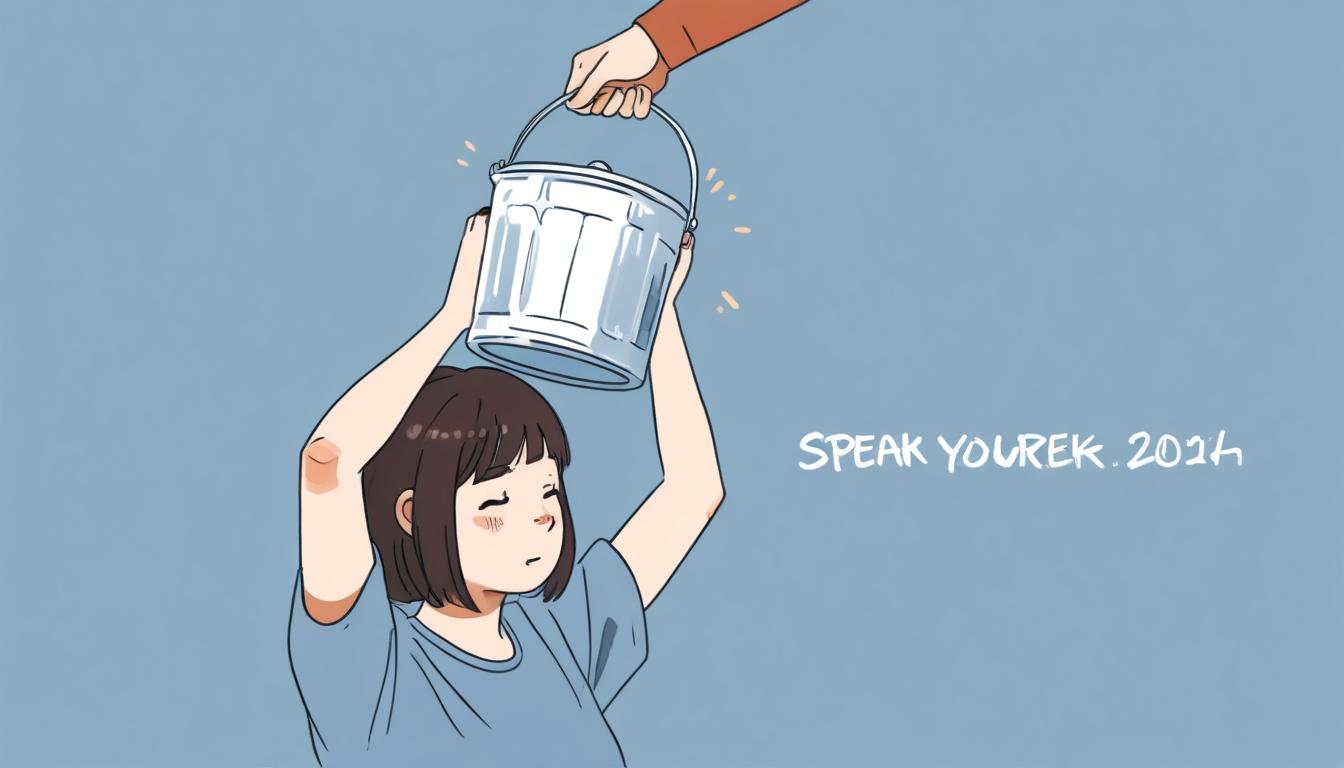A new wave of the Ice Bucket Challenge has emerged, this time focused on raising awareness and funds for mental health, inspired by the original campaign that took the world by storm a decade ago. The revitalised challenge, launched by US college students who lost two friends to suicide, aims to break the stigma surrounding mental health and encourage open discussion.
The original Ice Bucket Challenge gained global attention in 2014, with over 17 million people participating. It involved individuals pouring a bucket of ice-cold water over their heads, posting the video on social media, and nominating others to take part or donate. This viral movement significantly boosted awareness and fundraising for motor neurone disease (MND), also known as ALS in the United States, raising an estimated $220 million (£165 million) worldwide.
Richard Evans, director of engagement for the Motor Neurone Disease Association, remarked on the impact of the original campaign: “It ignited the fight against MND and gave us a new benchmark for fundraising. Every year since the challenge, we’ve increased fundraising: last year, we raised £37.9 million – more than we’ve ever raised before.”
The new challenge, which uses the hashtag #SpeakYourMIND, was initiated by Wade Jefferson, a student at the University of South Carolina and founder of the university's Mind (Mental Illness Needs Discussion) club. Jefferson explained, “It started as a random idea, inspired by the original ALS Ice Bucket Challenge and how powerful that movement was.”
The movement is gaining momentum primarily in the US, with notable figures such as former NFL players Peyton Manning, Emmanuel Sanders, James Charles, and Haley Baylee participating. Recently, Carson Daly, host of the Today show, featured a segment where he poured ice water over Jenna Bush Hager’s head in support of the campaign.
Jefferson expressed enthusiasm about the growing support, saying, “Watching it take off – seeing people we admire, like Peyton Manning, join in – has been surreal. We’re proud, grateful, and just excited to see how far it’s gone and continues to go.” He emphasised that the challenge’s goals extend beyond the ice water stunts: “Beyond the buckets and the contagious videos, it’s about breaking stigma, building community and making mental health a visible, valued part of everyday conversation.”
The renewed challenge, initially aiming to raise $500 (£372), quickly surpassed expectations, amassing over £142,000 within days. The organisers have since set an increased target of $250,000 (£187,048), but by Friday, donations had already reached approximately $338,000.
While the campaign has been broadly welcomed, there have been concerns about the social pressures the nomination element could create, potentially leaving some feeling excluded if they are not nominated. Jefferson addressed this by pointing to the educational materials accompanying the challenge, which include self-care tools, advice on offering support, and crisis resources available through activeminds.org. “Together, we’re not just starting a challenge – we’re creating a new era of mental health,” he said.
Some have questioned the appropriateness of repurposing the Ice Bucket Challenge format for causes beyond motor neurone disease. Evans commented on this perspective, noting, “The MND Association hasn’t been using it as a fundraising tool over the last few years, so if others doing important work want to take it forward, then we wish them all the very best.”
Evans revealed that while the MND Association considered reviving the challenge last year, they opted against it to focus on new fundraising strategies. This decision comes amid heightened public awareness of the disease, spurred by the campaigning and tragic losses of rugby players Doddie Weir and Rob Burrow, the efforts of Kevin Sinfield, and an MND storyline on the television show Coronation Street. Evans added, “The public’s awareness of the disease has been transformed, which is showing in the amazing sums that we’re fundraising and devoting to finding a cure for the disease.”
The ALS Association also welcomed the mental health campaign, stating their support for the challenge’s revival. A spokesperson commented, “We applaud efforts to raise awareness for causes like mental health – an issue that also affects the ALS community in profound ways.” They described the new challenge as a “new form of activism,” signalling a continued legacy for the Ice Bucket Challenge format in promoting significant health issues.
Source: Noah Wire Services
